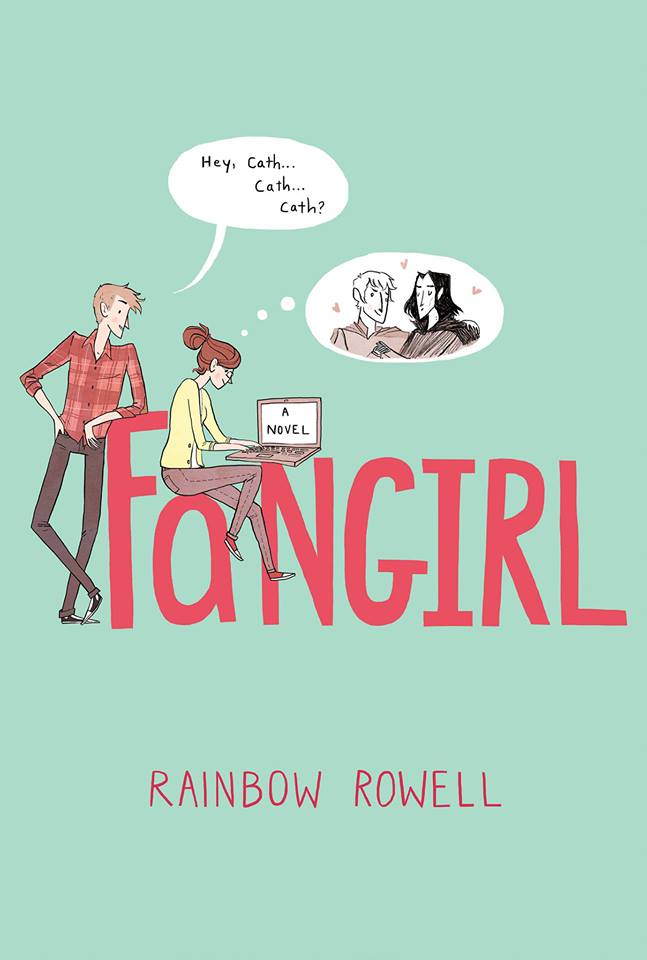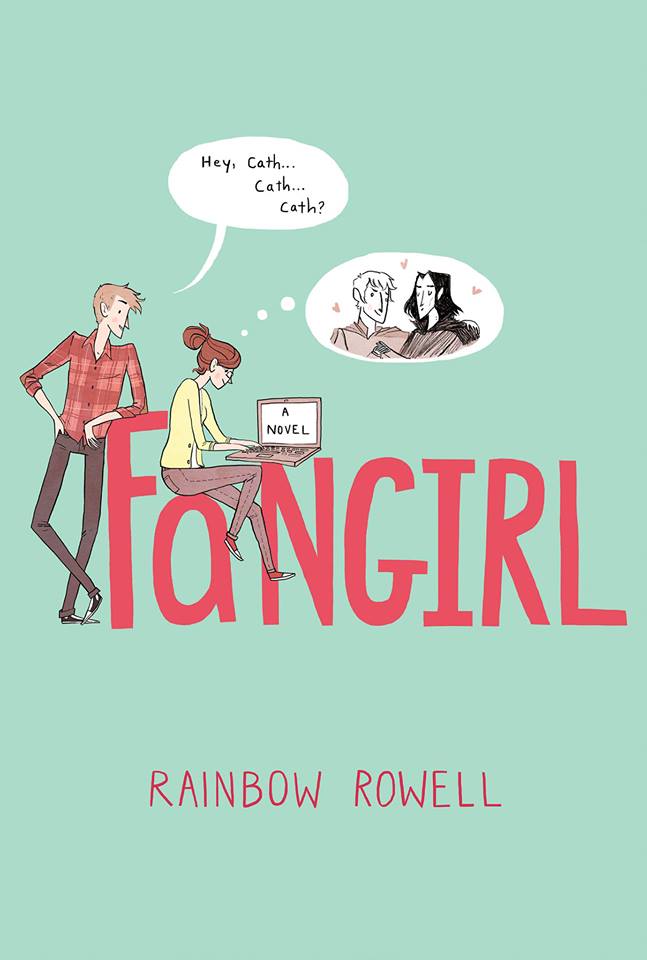There’s a fine line between liking something and letting it take over one’s life. For Cather “Cath” Avery, liking the fictional book series “Simon Snow” (think “Harry Potter” but with magicians) is a whole lifestyle that even extends to writing “fanfiction”—fan written fiction relating to a certain T.V. show, movie, book series etc.—for thousands of fellow fans of the series.
Rainbow Rowell, best-selling author of “Eleanor and Park,” returns this time to the life of Cath during her first year of college with “Fangirl,” a coming-of-age story of how to live a life outside of a “fandom”—a fanbase for a particular T.V. show, movie, book series, etc.—and even how to even find one’s voice as a writer.
Cath’s story starts with the fall 2011 semester, her first semester at the University of Nebraska-Lincoln, and eventually ends in the spring 2012 semester; the book is even divided up by these semesters. She isn’t exactly alone on this new stage of her life; her twin sister Wren also attends the same university, but Wren essentially ditches the anxiety ridden, nerdy fanfiction writer on the first day “to meet new people.”
For Cath, who can’t cope well in social interactions, getting dumped by her twin and having to meet her blunt, slightly unorthodox roommate Reagan and her longtime best guy friend Levi, is hard for Cath to digest. Combined with worrying about her slightly-off-the-rocker father and an Introduction to Fiction-Writing class that she initially struggles with, Cath’s first semester does not start off strong.
What made “Fangirl” such a heart-wrenching and comical read is how relevant it is to the young adult audience, especially in this digital age. Cath is so relatable because readers who prefer the internet and their fandom sometimes more than real life have been like Cath at some point in their lives.
They have the fan related T-shirts, all the memorabilia that goes along with it and even write and/or read the fanfiction created for that series. They escape into the fandom when regular life is too hard or they simply want to live another life…even for a little bit.
In the case of Cath, being a “Simon Snow” fan meant all of that when Wren practically abandoned her, or when Levi starts showing romantic interest in her (and she does in return) or when her Fiction-Writing professor calls her out for trying to turn in an assignment that’s actually one of her fanfiction pieces.
On that note, one disappointment with the novel was Cath’s utter lack of understanding of why trying to turn in fanfiction as a fiction writing assignment was wrong. While Cath admits that obviously the original author of the “Simon Snow” series is Gemma T. Leslie, she tries to justify to her professor that she simply “borrows” the characters of the series and puts them in new situations which suddenly makes them “her writings.”
Obviously her professor gives her an “F” on that assignment and warns her not to do it again, but afterwards Cath still doesn’t seem to understand that taking another author’s world as her own, and even claiming in one instance that she writes it better than the original author, is never acceptable and especially not for a college assignment.
Besides that rather questionable moral decision on Cath’s part, Rowell including themes such a mental illness, alcohol abuse, divorce, roommate life and other college student behaviors made the book so much more realistic and easy to walk around in.
“Fangirl” gives readers something to fangirl, or fanboy, about. It’s a book truly for young adults by someone who understands what it means to grow up in the digital age.





![[Both photos courtesy of sonoma.edu]
Ming-Ting Mike Lee stepped in as the new SSU president following Sakakis resignation in July 2022](https://sonomastatestar.com/wp-content/uploads/2024/04/CC4520AB-22A7-41B2-9F6F-2A2D5F76A28C-1200x1200.jpeg)



























